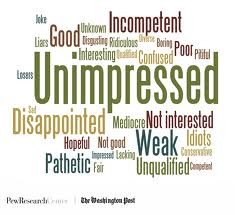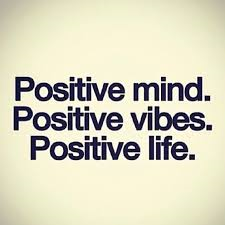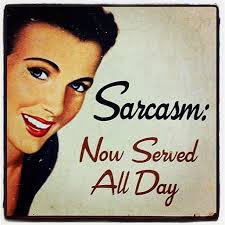 Are you happy with things the way they are? Do you believe that things could be better?
Are you happy with things the way they are? Do you believe that things could be better?
Are you satisfied with the state of the nation? Are you pleased with how things go at work? Are you happy with today’s world? Are young people too brazen? Are old people too stubborn? Are politics BS? Is hell “other people”?
In this week’s blog post we examine some of our frustrations and sources of stress. As we’ll discuss, we have more power over the dysfunctional elements in our environment than we think.
To believe there is nothing that we can do to stave off the negative influences of the things that displease us is not only a fallacy, it also contributes to the issues we wish to dissolve.
___
 From noisy neighbors and aggressive drivers to global politics, each day we are exposed to a plethora of issues or circumstances that conjure feelings of disbelief and lead to outright frustration. Furthermore, things we find troublesome awaken our fears, discouragement or anger, contributing to our stress.
From noisy neighbors and aggressive drivers to global politics, each day we are exposed to a plethora of issues or circumstances that conjure feelings of disbelief and lead to outright frustration. Furthermore, things we find troublesome awaken our fears, discouragement or anger, contributing to our stress.
Some things bother us, plain and simple. And when they do, they cause emotional reactions. Those reactions, in turn, affect our ability to focus and operate at our best.
The question is: to what degree do we let things bother us, and how do we react when we become aware of it?
Our natural reaction is to disengage or dissociate from the things bothering us. When we see or hear about something with which we are displeased or are radically against, we keenly distance ourselves from the position that is contrary to our beliefs. We do that mostly to assert our individuality; we align ourselves with things and positions that we relate to. Much of this is controlled by our ego.
Sometimes we feel we can’t weigh in on the issues; that our opinions have no impact and we are unable to affect the outcome. We can then keep our discontentment bottled up and remain silent.
At other times, we voice our displeasure and are eager to point out the perceived errors in logic, efficiency, morality or justice. However, by speaking up to assert ourselves, we also fuel the debate, which never helps in the resolution of the problem. We judge and criticize, and by expressing our animosity, we accentuate the chasm separating one viewpoint over the other. It’s like a form of child’s play: how feverishly can we argue to have the last word.
Whether we voice our displeasure or remain silent, our disengagement and dissociation don’t move the issue toward a positive and constructive resolution. By whining too much and giving these issues more attention, we may actually cause them to propagate and escalate.
 The more negative energy we feed into something, the more it has energy to survive and perpetuate.
The more negative energy we feed into something, the more it has energy to survive and perpetuate.
Even when we are silent about our displeasure or frustration, we feed that which we perceive to be wrong with more oxygen to live on. The issues get to us and preoccupy our minds, alter our attitudes, our belief systems, our decisions and our actions. This depletes our potential by way of the attitudes and thoughts we foster toward the things with which we are displeased or in disagreement.
Firstly, our potential is affected because of the time we squander thinking, listening or talking about these issues, and our attention is no longer allocated to engaging with the things we’d rather be doing, that can bring us satisfaction, or that could help in addressing the issues with which we have a problem.
Secondly, the negativity and resistance that we harbor toward that which we loathe also affect our disposition pertaining to other things. Sometimes directly: we get worked up and our ability to focus diminishes; sometimes indirectly: we become more cynical, feel that our thoughts or initiatives are inconsequential, and our sense of purpose spirals downward, all of which resulting in a diminished focus or effort to succeed at what we would really want to accomplish. It’s the cost of our passive-aggressiveness.
So, what is the alternative?
To engage; to thrive…
 Change begins within us, in our beliefs and attitudes.
Change begins within us, in our beliefs and attitudes.
- We can begin by not letting anything of which we disapprove interfere with our dispositions or thought processes, including the thought of disapproval itself; start by eliminating expressions like “I hate this…” or “I don’t like it when…” from your discourse (and your thoughts).
- We can view the things bothering us as not worthy of our consideration and time, even when others love to fuss over them.
- We can consider why an issue is really bothering us. Sometimes, the answer we find reveals more about ourselves (insecurities) and our biases (upbringing and prejudice) than about the issues.
- We can educate ourselves on the issues to understand how something that seems so wrong can actually come to be; start imagining how we’d rather have it be and how to get there.
- We can accept that there should be room for other views, choices and preferences than only ours. Our disinclination to embrace such things shouldn’t be a reason to be bothered by them and reject them. Learn to accept and co-exist.
 Change begins with us, in our interactions.
Change begins with us, in our interactions.
- We can choose not to participate in gossip and voice negative opinions.
- We can resist other people engaging us in discussions about frivolous things, especially things we feel negatively impact society or contain some sort of bias or prejudice.
- We can steer our dialogs and interactions toward subjects where positive and constructive energy can be added.
- We can encourage others to take a positive attitude toward things they seem displeased with, and challenge them to think of resolution rather than criticism or abolition.
- We can support others’ initiatives, even when they’re not “our thing”.
 Change begins with us, in our choices.
Change begins with us, in our choices.
- We can discipline ourselves in not spending time watching or discussing things we disapprove of, even when we think it’s only to make fun of it or to see how stupid it can really get.
- We can change our environment (including who we hang out with) to contain more of the issues and topics that we believe are of significance and have positive effects on our environment and the world.
- We can choose how we vote with our ballots and our wallets. How we express our principles and how we entertain ourselves is an opportunity to support the things we value.
- We can choose to be original (ourselves) and guide our choices from the heart, rather than by popular opinion or by fear of how others would perceive us because of our choices.
 Change begins with us, in our actions and engagement.
Change begins with us, in our actions and engagement.
No matter what our charter is or what we do in life, our actions can be directed toward effecting the change we desire in the world. Be it what we make or do, the opinions we cast, what we buy, or the philanthropic and charitable initiatives we support or start on our own, everything we do bears an influence and has consequences.
 Certainly, our engagement in doing and behaving in ways that we deem are right will tilt the scales of society only slightly. But think of it as the making of the Grand Canyon. Every single drop that passed through the brook, the river, then the gorge, contributed to creating one of the largest geological wonders of the world. Our actions are those drops. In addition, each drop that erodes further compels other drops to fall within the path that is previously carved. By our actions, we influence and lead others to adopt the attitudes and behaviors of which we wish there were more.
Certainly, our engagement in doing and behaving in ways that we deem are right will tilt the scales of society only slightly. But think of it as the making of the Grand Canyon. Every single drop that passed through the brook, the river, then the gorge, contributed to creating one of the largest geological wonders of the world. Our actions are those drops. In addition, each drop that erodes further compels other drops to fall within the path that is previously carved. By our actions, we influence and lead others to adopt the attitudes and behaviors of which we wish there were more.
 Passive-aggressive behavior isn’t the way to go. It poisons our souls, erodes our passion and turns us into hypocrites. Why choose this route for our lives, when we only have one life, and when we secretly wished we could become heroes? Choosing the right course doesn’t mean we’ll get the hero of the year award; it means that we can sensibly contribute in crafting the world in ways that we want it to be. Without getting the hero-award, we can still enjoy extraordinary lives.
Passive-aggressive behavior isn’t the way to go. It poisons our souls, erodes our passion and turns us into hypocrites. Why choose this route for our lives, when we only have one life, and when we secretly wished we could become heroes? Choosing the right course doesn’t mean we’ll get the hero of the year award; it means that we can sensibly contribute in crafting the world in ways that we want it to be. Without getting the hero-award, we can still enjoy extraordinary lives.
 But most importantly, we should never fall for sarcasm or cynicism because this prevents us from adopting the right behaviors and reacting positively. Doing the right thing is the only way to instill in us a greater sense of purpose and direction. It helps us build character, set the course for a brighter destiny and forge a legacy we can be proud of. When things seem desolate or pathetic, this is the way to brighten our path in achieving our personal success and happiness, and to contribute in making the world a better place for us and future generations.
But most importantly, we should never fall for sarcasm or cynicism because this prevents us from adopting the right behaviors and reacting positively. Doing the right thing is the only way to instill in us a greater sense of purpose and direction. It helps us build character, set the course for a brighter destiny and forge a legacy we can be proud of. When things seem desolate or pathetic, this is the way to brighten our path in achieving our personal success and happiness, and to contribute in making the world a better place for us and future generations.
 Thank you for reading and leaving your observations on the issue in the comment section below. Different points of view will help others get clarity on the question. Feel free to drop a question or suggest a topic that I may use for a future blog post in discussing the achievement of success and happiness and inspiring you to add “A Dash of Greatness” to your lives?
Thank you for reading and leaving your observations on the issue in the comment section below. Different points of view will help others get clarity on the question. Feel free to drop a question or suggest a topic that I may use for a future blog post in discussing the achievement of success and happiness and inspiring you to add “A Dash of Greatness” to your lives?
I wish you and yours much Success and Happiness, ahead. For more ideas and strategies on awareness, our potential, our success and happiness, please consult Our X Factor, available everywhere in paperback and e-format and at http://www.OurXFactor.com.
Xavier Van de Lanotte
We all have an X factor…
Bookmark every day with Success and Happiness.
Our X Factor features a unique three-pronged approach to achieve success and happiness every day—Awareness, Making it Happen, Making it Count.
The text is rich with quotations, references, stories, examples and anecdotes that highlight throughout the book the behavioral, psychological and philosophical aspects of our quest for success and happiness.
An X factor is the quality that bestows unique characteristics leading to the achievement of extraordinary successes and spectacular accomplishments, among other amazing things.
Yet we all have an X factor, without exceptions! Our X Factor guides us through an exciting, informative and enlightening journey, and shows us how to be GREAT!
We were all born ordinary people. Yet we can lead extraordinary lives!



